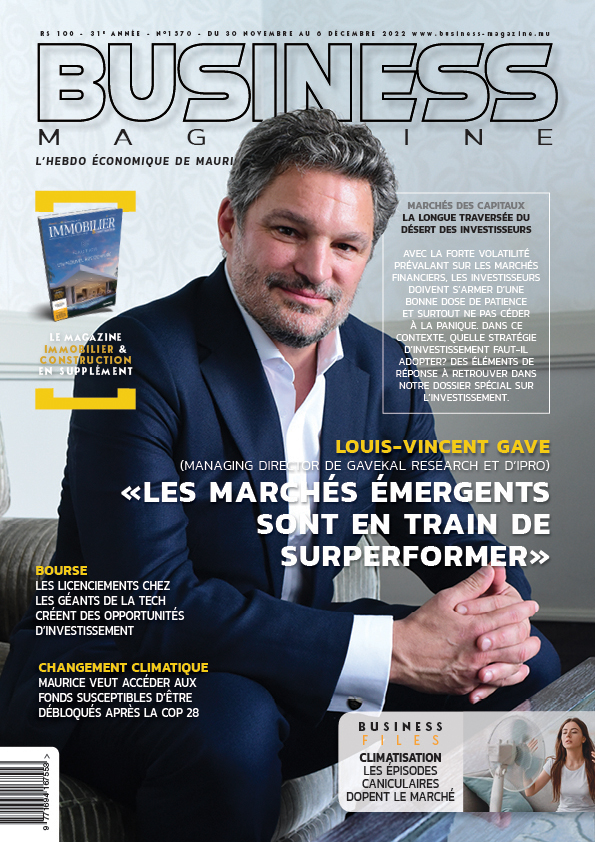Subheer Ramnoruth – Education : What is the real need?
Share

As our education system undergoes yet another reform, we ponder on the real needs of education. Nelson Mandela claimed that “education is the most powerful tool that can be used to change the world” and the younger and heroic MalalaYousafzai also believes that “one child, one pen, one book and one teacher can change the world”.
Education and change are two words that walk hand in hand with each other and I cannot but agree with both statements. Education is primarily a transformational tool and many seem to forget this very simple basic fact. We get into the process of education because we are not satisfied with our current state of understanding, reasoning and decision-making, which ultimately affects our actions, that is, our behavior.
Yes, we get educated because we want to ultimately change our behavior – for the better. Therefore amassing degrees, titles, information, facts, and so on, is of very little use if these do not translate into a positive change in behavior.
Are Mandela or Yousafzai farfetched when they claim that education can change the world? Definitely no! When one is endowed with a positive behavior, there shall be beauty in the character. When intelligent people of beautiful character live and work together, it leads to harmony and progress. And harmony and progress lead to peace in the world. But we do not see this result in the world because the focus of our global system of education is not on change in behavior. I dare say that much of the effort stops at change in the way we reason. Definitely, people reasoning faculties have improved compared to 50 years ago. But can we state that people’s behavior has improved as the literacy rate has climbed? Facts and figures show that fraud, crimes, irreverence for elders (the list can go on) have multiplied.
The reason for such decline is that our process of education aims mainly at sharpening the intellect. Students are trained to be more intelligent but they are not taught how to use that intelligence in the right and controlled manner. Imagine for a second that you are holding a sharp knife, but you have no control over your hand movement. Similarly, intelligence, without controlled and regulated behavior, can be dangerous.
Does the education reform take this fundamental fact into consideration and to what extent? I leave that open for debate. Matter of fact remains that the primary purpose of education is the shaping of human behavior for the better and unless there has been a lasting positive change in behavior, education has not occurred.
There has been much criticism that education is turning into a business activity but it is the truth. It may not and should not be the only goal of education but we should not naively dismiss the fact that we are preparing students to sustain our economy. Be it parents, the students themselves, the educational institutions or the government bodies, they are all equally aware of this fact. One is getting educated so that he/she can take up a job afterwards, in other words, the student of today shall contribute to the future economic development of the nation and/ or the world.
Compare this process to the training of an army getting ready to enter the battlefield in five, ten or twenty years’ time. Now imagine, if all the soldiers in that army learn to fly a helicopter. Or if all of them decide to navigate submarines and none knows how to take a decent shot with a gun or wield any weapon. You would say that such an army, despite being very well trained, is not balanced and is bound to lose any battle. What will also happen in the future is that many would end up being unemployed because of an overconcentration of trained people in one or few particular field(s).
Therefore, at the very beginning of the whole process, the leader of the armed forces needs to know – for example – how many gunmen he has to have, how many pilots are required, how many missile specialists will be necessary, the navy requirements, etc. Then, aspiring soldiers can make an informed choice about what they want to do and at the same time, knowing that there will be a need for that particular skill in the future.
In technical terms, we may call that a human resource plan or strategic human resource management. Similarly, for our economic machine to function at full swing, we need to know in advance how many skilled labor we will need for each particular field in five or ten years’ time, failing which, students would blindly choose a field of study and we shall end up as an army of pilots only without trained gunmen. Not only that, we will also have an imbalanced workforce, leading to surplus of trained people in various sectors, ultimately generating unemployment. Such a state will slow down our economic growth rate.
Therefore, I think a reform should have as basis a strategic human resource plan for the next ten years based on the country’s needs. Failing that, we will be an unbalanced army fighting the economic battle.
A child that gets into our education system today, will retire in 2077. Does anyone know the technology, skills and mindset that will be required then? What we can guarantee is that it will be very different from what we need today. But we are teaching the kids according to today’s industry requirements. How then can they be equipped through education to face challenges that are still unknown?
To find a solution to a problem that we have not been exposed to in the past, we need to find a solution that has never existed before. For that, we need creativity. Hence, creativity has to be assigned an equally important status in our curriculum as traditional academic education.
That needs a whole change in culture and approach. Let me share a simple example to support what I wish to convey. To enhance your creativity, you need to try something new. And when you try something new, you are bound to make mistakes. In consequence, mistakes should be viewed as positive steps in the creativity enhancement process. However, at school, when I made a mistake, I was always punished. It was almost treated as the darkest sin that I had ever committed (without exaggera-ting). So most kids ultimately give up trying to solve problems differently or giving answers that are different from their peers in class, for they fear (I should rather say they dread) failure. In the process, our creativity dies a slow death and this is very often a nearly irreversible process.
This analysis is obviously limited and many other critical facets of education could not be explored. My attempt was to highlight a few fundamental needs and responsibilities of education.
If we give it a few minutes thought, we will understand that in any field of activity, be it engineering, information technology, logistics, service or finance, the ultimate aim is to bring about human wellbeing. Out of all these economic activities, the one that could have a direct and more impactful bearing on human life is surely education. And as was beautifully said by Abraham Lincoln: “Upon the subject of education... I can only say that I view it as the most important subject which we, as a people, may be engaged in”.




